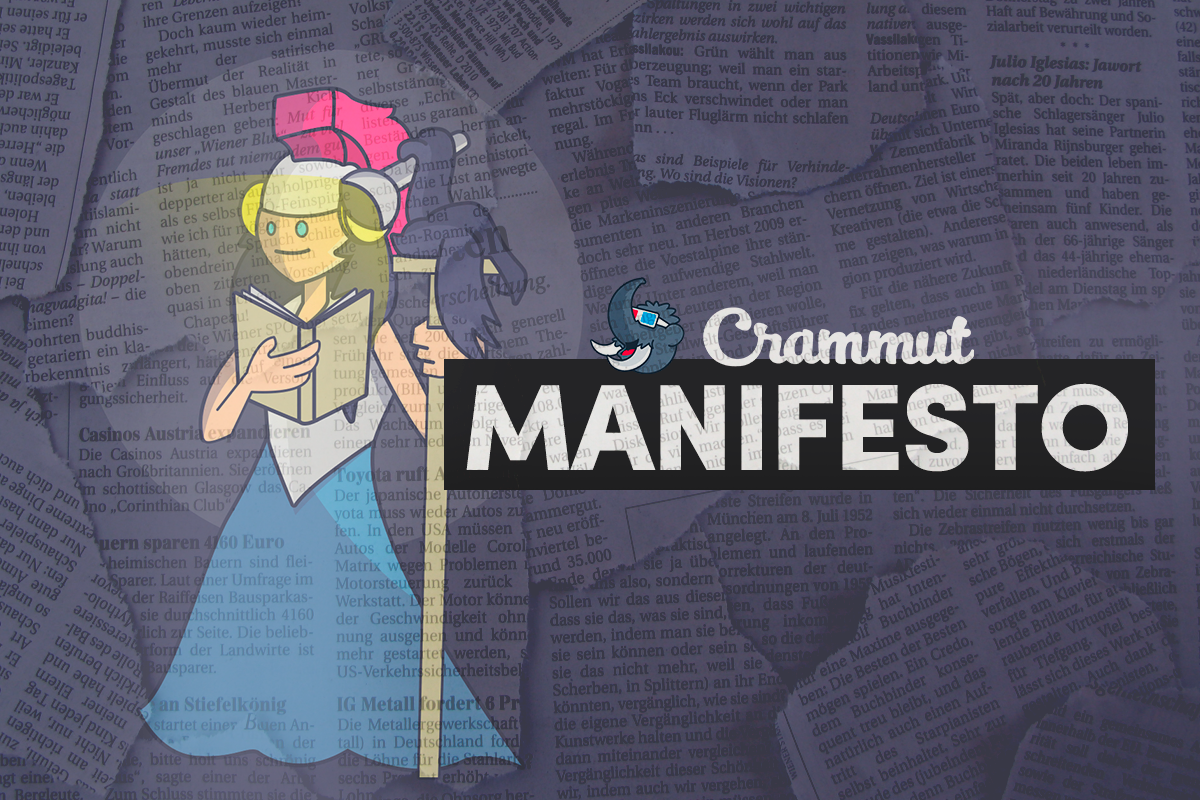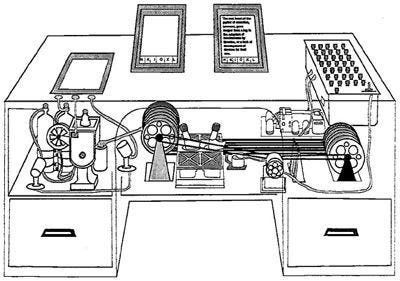how lifelong learning spaces at work kill enterprise status quo


The Crammut manifesto — how lifelong learning spaces at work kill enterprise status quo
In 1945, in a world where scientific breakthroughs took nearly 10 years to get into our lives, scientistVannevar Bush published an essay called ‘As we may think’ where he imagined how the future technology would allow faster knowledge transmission and our society could put the new findings into practice in real time.


What happened next is history. Internet has become an ongoing growing library where, for the first time, well known institutions are not the only source of meaningful content
Blogs like Espresso English, Youtube channels like Smarter Every Day or CrashCourse, communities like IndieHackers, subreddits like ‘Ask a Math Question’ or ‘Ask a Historian’, projects like Gutenberg, TED podcasts — an endless archive that could be twice as big if we included the more formal sources, like online courses, MOOCs or paper books.
What would Bush say, then, if he knew that companies still have issues when it comes to effectively achieve their team’s professional development despite our tremendous access to information?
Money isn’t everything, but everything requires money


According to the latest Elearning Industry report, 77% of CEOs think their teams aren’t growing fast enough to meet the company’s needs, however, their professional development is stagnant due to budget limitations.
In fact, a study from the European Commission’s DG for Employment, Social Affairs and Inclusion states that a third of the European SME have financial problems to train employees and this is ultimately holding these companies back.
Taking into account that the 99,8% of the European companies are SME and they represent the 58% of European GDP, providing them an affordable system to organize and take advantage of all this free content available on the Internet would boost half of the European business fabric.
Best case scenario, budget or even time is not the real pain — attention is.


Interruptions, more urgent tasks or last-minute requests from clients make it nearly impossible to prioritize our own professional development goals, not to mention to keep an eye on our team’s.
Yet, lifelong learning spaces are achieving greater results because responsibility does not fall upon a single person, but the whole team; allowing anyone to play an active role in the development of his/her peers and, at the same time, keeping training individually relevant.
Plus, in the age where entertainment is the indisputable leader of our devoted attention, constant feedback is and it has always been a powerful tool to draw our team’s attention and keep them motivated to stay on track.
So, if companies are able to train their teams with less budget and greater speed thanks to curated content from the Internet, a constant feedback system will increase the commitment between the employee and his/her professional development, making it a more satisfying process. And once your employees fall in love with the process, results will eventually come along.
Don’t be a know-it-all, be a learn-it-all instead
Having stated that, we believe it is necessary to establish a new system that allows professional development in a smart and affordable way for small-and-medium-sized companies, specially for those where the founder team is still in charge of the talent management tasks.


That how we envisioned Crammut, a platform where you can create learning paths for your and your team with formal and informal resources — AND rate and comment them once you are finished in order to turn your company into a lifelong learning space. It’s a ‘Trello-meets-Fitbit’ sort of thing.
This is what Crammut works today, but there’s more. If Crammut becomes the tool all SME to manage their team’s professional development, it will also store the needed data to identify trends and share this info with our users. So instead of wasting time spotting what’s the next hot, you and your team can focus on actually learning something valuable for your company.
Make it possible for everyone at work to be knowledgeable in whichever field they choose. Invest for real in the greater asset of your company.
Crammut is here to be a game-changer in tailored learning, we promise. Feel free to come along. We’ll have fun. :)
